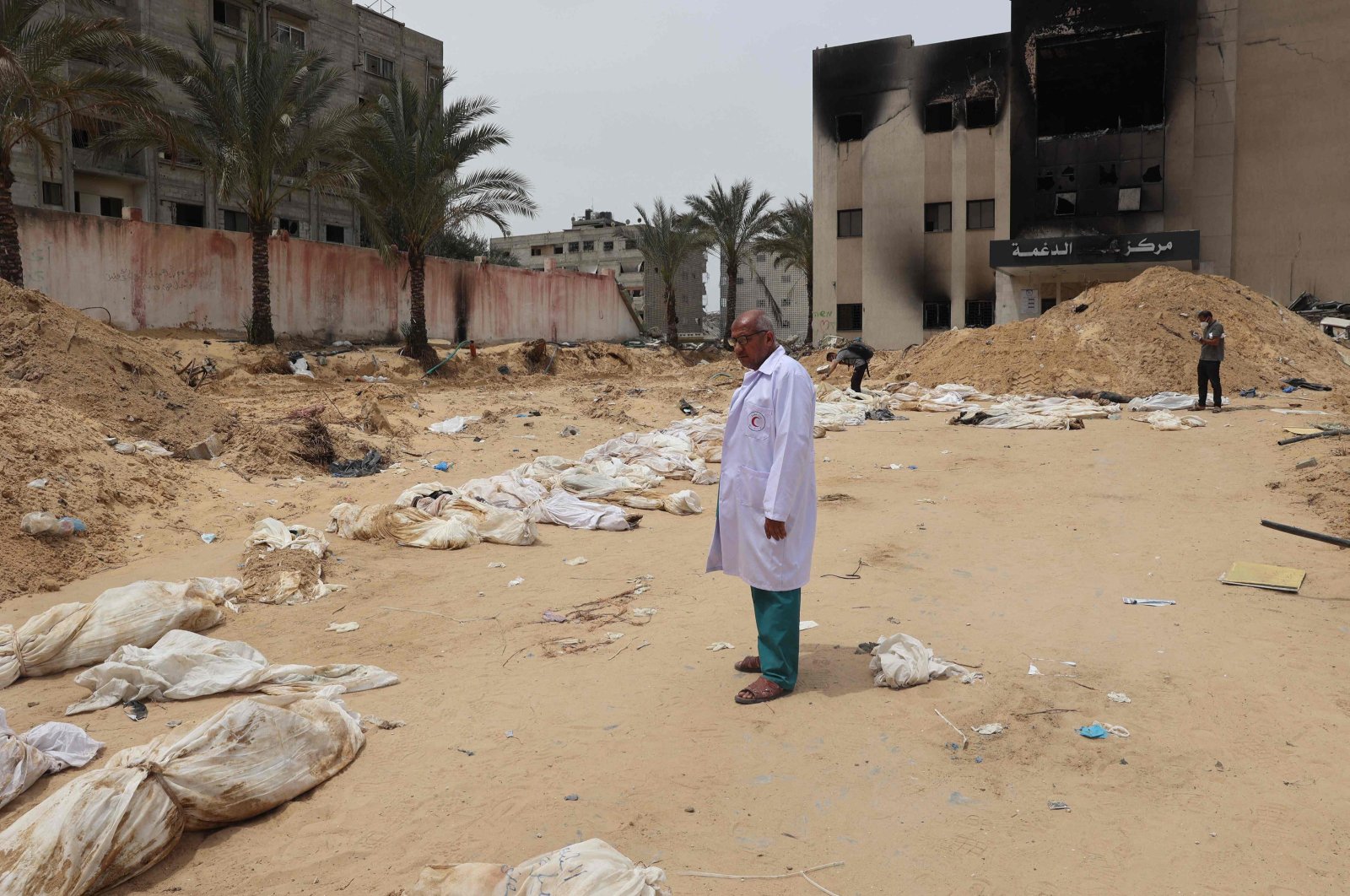Asked about evidence suggesting that some victims were buried alive in mass graves at Nasser Hospital in Khan Younis in southern Gaza and what should be done with such evidence, U.N. spokesperson Stephane Dujarric told at a news conference Thursday that “it’s important that all forensic evidence be well preserved.”
Citing the U.N.’s call for an international investigation on the mass graves, Dujarric said, “How that will take place, it’s unclear at this time.”
He said some legal units of the U.N. have the authority to initiate investigations but that has not yet occurred
Regarding the question about if the U.N. could send a team to the field, Dujarric said: “It’s not a matter of the Secretary-General (Antonio Guterres) be proactive because we do not have a mandate to participate in such investigation.”
Emphasizing that those conducting the investigation must have access to Gaza, he noted that approval from several countries, including Israel, is required.
Dujarric stated that while the U.N. is gathering information, preserving potential evidence is another matter.
He also provided information on developments regarding medical evacuation requests from Gaza, and said, “Only 54% of patients requiring medical evacuation had their requests approved by Israeli authorities.”
“That’s fewer than 5,300 patients out of the more than 9,800 in total that need evacuation for medical reasons,” he added.
Noting that priority is given to those injured in the conflict, he said individuals with chronic illnesses are kept waiting.
He reported that some children waiting for dialysis died while awaiting permission to leave.
Dujarric further stressed the alarming rates of diarrhea and hepatitis in Gaza.
Source:dailysabah.com
